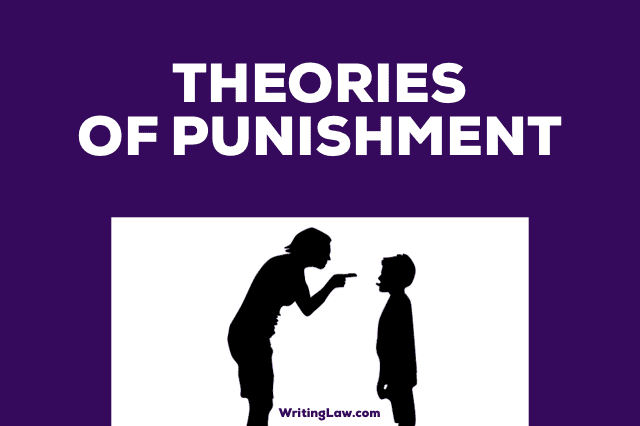Latest News
Theories of Punishment

With the rise of crime, the necessity of punishment came into light. Punishment became the fundamental mean of averting crime. Crime being inevitably gave way to punishment is inevitable. But the term punishment in itself has a wide scope.
Many great Minds analyzed and studied the various aspects pertaining, influencing, and understanding the parameters of punishment.
There have been numerous discussions to comprehend what punishment stood for in this society. Whether it was a symbol of protection or an epitome of condemnation or a bit of both. It was important to understand the very essence of punishment.There are four most important theories of punishment.They are the deterrent theory, retributive theory, preventive theory, and reformative theory.
Deterrent theory
The deterrence precept of punishment may be traced to the early works of classical philosophers such as such as Thomas Hobbes (1588–1678), Cesare Beccaria (1738–1794), Together, these theorists protested against the legal policies that had dominated European thought for more than a thousand years, and against the spiritualistic explanations Also, these social contract thinkers provided the foundation for modern deterrence theory in criminology.
As per this theory, punishments are assigned to educate the wrongdoers. Here punishment is used as a mode to get through to wrongdoers, it an attempt made to trigger introspection within the wrongdoer.
This theory suggests that punishments are awarded to deter future crimes.
Thomas Hobbes stated that The deterrence theory of punishment can be traced to the early works of classical philosophers such as Thomas Hobbes (1588–1678), Cesare Beccaria (1738–1794), and Together, these theorists protested against the legal policies that had dominated European thought for more than a thousand years, and against the spiritualistic explanations of Also, these social contract thinkers provided the foundation for modern deterrence theory in criminology.
Cesare Beccaria asserted that jails should be more humane and the law should not distinguish between the rich and the poor. Judges should determine guilt and the application of the law, rather than the spirit of the law. Legislators should pass laws that define crimes and they must provide specific punishments for each crime.
Retributive theory
The retributive theory is based on the contention that when a crime is committed, punishments are assigned to give the aggrieved or injured a sense of revenge or retribution.
Retribution is based on the concept of lex talionis—that is, the law of retaliation. At its core is the principle of equal and direct retribution, as expressed in Exodus 21:24 as “an eye for an eye.” Destroying the eye of a person of equal social standing meant that one’s eye would be put out. Some penalties designed to punish culpable behavior by individuals were specifically tied to outlawed acts. Branders who used their skills to remove a slave
It is based on the theory that who injured, must also be injured in some way.
It is the most widely accepted rationale for punishment.If convicted, the sentence the defendant gets is always, at the least in part, a shape of retribution.
This theory is however subject to a lot of criticism as “eye for an eye can make the whole world blind”.
Preventive theory
As per the preventive theory of punishment, the wrongdoer is ought to be punished to further prevent him/her from committing a crime in the future.
“The fear of acts which disrupt social equilibrium has inspired the imposition of punishment by those who have the power to establish and enforce the desired standards of conduct. ”
-Joel Meyer,
This theory contends that the fear of punishment can influence one to not commit a wrongful act.The regulation threatens certain pains in case you do positive things, intending thereby to offer you a new purpose for not doing them. If you persist in doing them, it has to inflict the pains so that its threats may continue to be believed.Justice Holmes said that As the name suggests that the preventive principle of punishment aims at stopping potential crimes with the aid of disabling the criminal.
Reformative theory
The reformative theory is Based on the contention that, the wrongdoer is to be punished to reform the wrongdoer. The reformative theory considers punishment to be curative more than to be deterrent.
Here crime is considered a disease that requires treatment. Adequate Punishment is deemed as the treatment of the disease. This theory also gives due importance to the “why” of crime. Reforming the wrongdoer is considered more important than inflicting fear upon him/her.



































































































